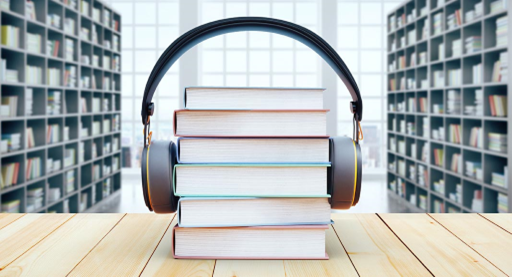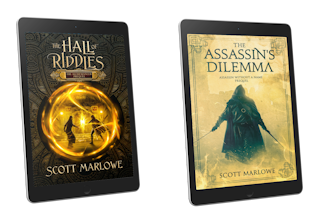
A multi-part series where I address the question, When to stop reading?
So far in this series I've looked at various rules and quantifiable methods one can use to determine when it's time to give up on a book. I applied the 99 Page Test to my own novel. Finally, and most recently, I looked at when to give up on a short story. This time I'm going to break away from the printed word and take a look at audiobooks.
Audiobooks are not without their controversy. The debate of audio vs print is older than the digital age (think cassette or even 8-track tapes). Yet we often hear about how people are reading less and less and how the digital era spells the doom of the printed book, so maybe audiobooks through their inherent convenience might become a lifeline for some people who might otherwise never experience great literature again. Nevertheless, audiobooks are not so different from their printed counterparts when it comes to the question of sticking with it or stopping.
So, at what point do you quit listening to an audiobook? What are the rules (other than just your gut feeling, of course)? Tests like the Page 99 Test aren't going to work for obvious reasons. Neither is the Rule of 50 or the similar 100 Page Rule going to cut it. The 33% Rule, perhaps. You just need to count the number of discs (or tapes) or look at the total running time and divide by 3. If you hit that threshold and the audiobook ain't doing it for you, time to hit 'eject' or 'stop' or even 'delete' if you're that disgusted with it.
To answer the question, I'm going to do something different. I'm going to turn it around and instead ask what keeps you listening to an audiobook.
First and foremost, it's the narrator. The "right" narrator should satisfy the following criteria (as determined by Darren Barefoot):
- They have distinctive voices.
- They care about pronunciation.
- They understand cadence, and adjust the pacing of their reading to reflect the story’s inertia.
- If they do voice work, they do it well.
- […] they sound like they care about and are invested in the work.
I couldn't agree more. The very first audiobook I ever listened to was Neil Gaiman's Anansi Boys, narrated by Lenny Henry. Henry did an excellent job. The best thing about his narration was his use of voices. When reading dialog, there was no question as to which character was speaking. Not only that, but the voice which Henry chose to use for each character is in itself a storytelling device because each illuminated my perception of that character. It's something you just don't get when reading a story yourself.
Yet this can have the opposite effect, too. I recently listened to Dragons of the Dwarven Depths, narrated by Sandra Burr. This one almost lost me when she started in with the raspy voice of the draconians. It sounded forced and I found it borderline annoying. Fortunately it was a small part in the beginning, and since I'd bought the audiobook from Half-Priced Books I only had a few dollars invested. I kept listening and (quite to my surprise b/c I loathe Weis and Hickman's writing style) I enjoyed the story.
There's also the quality of the recording. Though I have yet to listen to an audiobook that did not have "professional" level quality, with more and more amateurs recording their own audiobooks and making them available as quick downloads this may play a bigger role moving forward.
Of course, there are the usual factors, too: the quality of the storytelling (as written by the author), the choice of dialog, the characters, setting. These will always be amongst the best qualities of great storytelling regardless of the medium.
With that, I'm curious what others think. What qualities keep you listening to an audiobook? Or do you not listen at all?

Join my reader's group and get The Hall of Riddles (An Alchemancer Prequel) and The Assassin's Dilemma (An Assassin Without a Name Prequel) as a welcome gift.